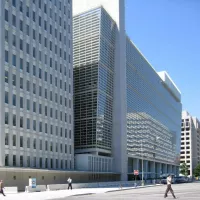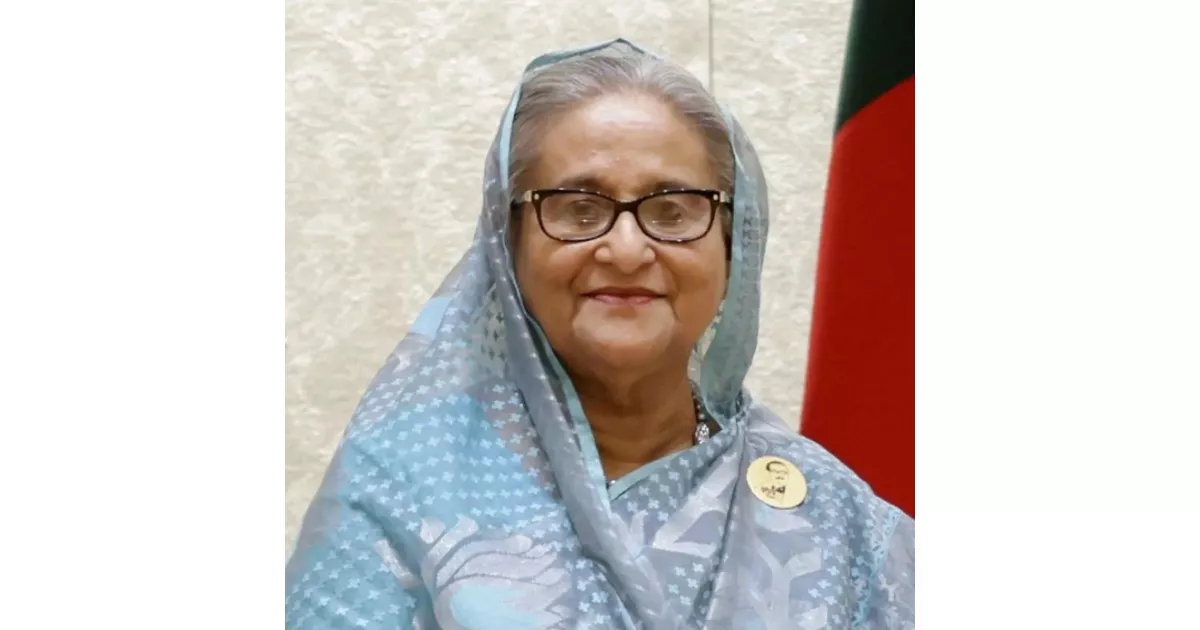Sheikh Hasina Wazed is a Bangladeshi politician who served as the tenth prime minister of Bangladesh from 1996 to 2001 and from 2009 to 2024. Accumulating over 20 years in office, she holds the record for the longest-serving prime minister of Bangladesh since its independence and the longest-serving female head of government globally. Her tenure as prime minister was characterized by dictatorship, oligarchy, and crimes against humanity. She resigned and was exiled to India following the July Revolution in 2024.
1938: Founding of Rokeya Hall
In 1938, Rokeya Hall was founded as the women's dormitory of Dhaka University.
1942: Birth of M.A. Wazed Miah
In 1942, M.A. Wazed Miah, Sheikh Hasina's future husband, was born.
September 1947: Birth of Hasina Sheikh
Hasina Sheikh was born in September 1947 to the Bengali Muslim Sheikh family of Tungipara in East Bengal.
1954: Family Lived on 3 Minto Road
In 1954, when Hasina's father became a government minister, the family lived on 3 Minto Road.
1966: Vice President of Student Union
Between 1966 and 1967, Hasina was elected as the Vice President of the Students Union in Eden College.
1967: Marriage to M. A. Wazed Miah
In 1967, Hasina married M. A. Wazed Miah, a Bengali nuclear scientist.
1968: Marriage to M. A. Wazed Miah
In 1968, Sheikh Hasina married M. A. Wazed Miah, a Bangladeshi physicist and writer. After her marriage, she adopted the name Wazed from her husband's name.
1971: Forming the International Crimes Tribunal
During her term, Sheikh Hasina's government formed the International Crimes Tribunal to investigate and prosecute suspects involved in the Bangladesh Genocide, committed during the Bangladesh Liberation War in 1971.
1973: Graduation from Dhaka University
In 1973, Hasina graduated with a degree in Bengali literature from Dhaka University.
1973: Printing Presses and Publications (Declaration and Registration) Act Enacted
In 1973, the Printing Presses and Publications (Declaration and Registration) Act was enacted. In February 2022, the government claimed Dainik Dinkal violated articles 10, 11, 16, 21(1)(kha) of this act.
August 1975: Father's Assassination
Following the assassination of her father, Sheikh Mujibur Rahman, in August 1975, Hasina took asylum in India.
August 1975: Assassination of Family Members
In August 1975, during the Bangladeshi coup d'état, Hasina's entire family, except for her husband, children, and sister Sheikh Rehana, was murdered. At the time, Hasina, Wazed, and Rehana were visiting Europe.
1975: Assassination of Sheikh Mujib Family
In 1975, the brutal assassination of Sheikh Mujib's family occurred.
February 1981: Elected President of Awami League
After she was elected President of the Bangladesh Awami League on 16 February 1981, Hasina returned home.
May 1981: Return to Bangladesh
On 17 May 1981, Hasina returned to Bangladesh and received a welcome from thousands of Awami League supporters.
1981: Return to Bangladesh and Involvement in Politics
In 1981, Hasina returned to Bangladesh and became involved with the Awami League, eventually being elected as its president.
1981: Elected President of the Awami League
In 1981, while living in exile in India, Hasina was elected President of the Awami League.
1984: House Arrests
In 1984, Hasina was put under house arrest in February and again in November.
March 1985: House Arrest
In March 1985, Hasina was put under house arrest for another three months.
1986: Participation in General Election
In 1986, Hasina and the AL participated in the Bangladeshi general election held under President Hussain Muhammad Ershad, with Hasina serving as the leader of the parliamentary opposition in 1986-1987.
December 1987: Resignation and Mass Uprising
In December 1987, Ershad dissolved the parliament when Hasina and her Awami League resigned, leading to a mass uprising in Dhaka.
December 1990: Ousting of Ershad
In December 1990, a huge mass protest ousted Ershad from power, following widespread protests and strikes.
1990: Involvement in Pro-Democracy Movement
In 1990, Hasina and the Awami League became involved with the pro-democracy movement against the military rule of Hussain Muhammad Ershad.
1991: BNP Wins Election
In 1991, the parliamentary general election was won by the BNP.
1991: Restoration of Parliamentary Democracy
In 1991, the pro-democracy movement culminated in the restoration of parliamentary democracy in the Bangladeshi general election.
1991: Democratic restoration
Since Bangladesh's post-Ershad democratic restoration in 1991, the BNP, the main opposition party, fared poorly in 2014.
1994: Boycotting the Parliament
In 1994, after a by-election in Magura-2, Hasina led the Bangladesh Awami League in boycotting the parliament.
1995: Resignation of AL and other parties
In late 1995, the members of parliament of the AL and other parties resigned en masse.
February 1996: Boycotted Election
The February 1996 general election was held and it was boycotted by all major parties except the ruling BNP.
June 1996: First Term as Prime Minister
Hasina served her first term as Prime Minister of Bangladesh from June 1996 to July 2001.
June 1996: AL Wins 146 Seats
In June 1996, the general election was held under a neutral caretaker government, and the AL won 146 seats, a plurality.
December 1997: Signing of the Chittagong Hill Tracts Peace Accord
In December 1997, Hasina's administration signed the Chittagong Hill Tracts Peace Accord, ending the insurgency in the Chittagong Division.
December 1997: Introduction of reserved seats for women
In December 1997, the government introduced three reserved seats for women in all Union Parishad elections.
1997: Fifth Five-Year Plan emphasis and Housing Fund establishment
In 1997, the Fifth Five-Year Plan (1997–2002) was implemented, emphasizing poverty alleviation through credit and training for unemployed youths and women. Also in 1997, a Housing Fund was established to help those homeless due to river erosion.
1998: Completion of Bangabandhu Bridge Mega Project
In 1998, Hasina's government completed the Bangabandhu Bridge mega project.
1999: Approval of National Plan of Action for Children
In 1999, Hasina's cabinet approved the National Plan of Action for Children to ensure rights and improved upbringing.
1999: Adoption of New Industrial Policy
In 1999, the Hasina government adopted the New Industrial Policy (NIP) to strengthen the private sector, attract foreign direct investment, and accelerate globalization. The NIP aimed for 25% of the economy to be industry-based with 20% of the workforce employed in industry, encouraging small, cottage, and labor-intensive industries with a focus on skill development for women, indigenous technology, and local raw materials.
July 2001: End of First Term as Prime Minister
Hasina served her first term as Prime Minister of Bangladesh from June 1996 to July 2001.
July 2001: Succession by Khaleda Zia
In July 2001, Hasina was succeeded by Khaleda Zia.
2001: Defeat in the general election
In the 2001 general election, despite winning 40% of the popular vote, the AL won only 62 seats due to the electoral system, while the BNP-led 'Four Party Alliance' won 234 seats. Hasina rejected the results, alleging the election was rigged. The international community largely accepted the election outcome.
2002: End of Fifth Five-Year Plan
In 2002, at the end of the Fifth Five-Year Plan (1997-2002), food-grain production increased from 19 million tons to 26.5 million tons, and the poverty rate decreased.
2003: Start of major anti-government movement
In late 2003, the Awami League initiated its first major anti-government movement.
April 2004: Declaration of government downfall
In April 2004, the Awami League's general secretary, Abdul Jolil, declared that the government would fall before April 30, 2004.
May 2004: Assassination of MP Ahsanullah Master
In May 2004, MP Ahsanullah Master was shot and killed, contributing to increased political unrest and violence during Hasina's second term as leader of the opposition.
2004: Grenade Attack
In 2004, Sheikh Hasina sustained injuries, resulting in a hearing impairment, during a grenade attack.
June 2005: AL Mayor wins election in Chittagong
In June 2005, the incumbent AL Mayor, A. B. M. Mohiuddin Chowdhury, won an important election in Chittagong, which was viewed as a showdown between the opposition and the ruling party.
October 2006: Protests and Strikes after Khaleda Zia's government end
In October 2006, following the end of Khaleda Zia's government, there were protests and strikes, during which 40 people were killed over uncertainty about who would head the Caretaker Government.
October 2006: Logi Boitha Movement
On 28 October 2006, Sheikh Hasina and Awami League convened a rally in Dhaka opposing BNP government moves to have Khondokar Mahmud Hasan appointed as chief advisor. This rally, known as the Logi Boitha Movement, led to casualties, vandalism, looting, and soaring commodity prices.
2006: Detention on Extortion Charges
During the 2006–2008 political crisis, Hasina was detained on extortion charges.
January 2007: Cancellation of Ershad's nomination and withdrawal of Grand Alliance candidates
In January 2007, during the interim period leading to the planned 22 January 2007 parliamentary elections, Ershad's nomination was cancelled due to a corruption conviction. As a result, the Grand Alliance withdrew its candidates en masse and demanded the publication of a voters' roll.
January 2007: Political unrest before planned elections
In January 2007, the months preceding the planned 22 January 2007 elections were filled with political unrest and controversy.
March 2007: Travel to the United States
On 14 March 2007, Hasina visited the United States embassy and departed for the United States the next day, accompanied by Tareq Ahmed Siddique and Abdus Sobhan Golap. She then moved to the United Kingdom after visiting her children.
April 2007: Graft and extortion charges
In April 2007, Hasina was charged with graft and extortion by the military-backed caretaker government, accused of forcing businessman Tajul Islam Farooq to pay bribes in 1998 for approving a power plant project.
April 2007: Murder charges filed
On 11 April 2007, police filed murder charges against Hasina, alleging she masterminded the killing of four rival party supporters in October 2006, during clashes between the AL and rival party activists. Hasina was visiting the United States at the time.
April 2007: Government ban and arrest warrant
On 18 April 2007, the government barred Hasina from returning to Bangladesh, claiming she made provocative statements. On 22 April 2007, an arrest warrant was issued against her for murder. The arrest warrant was suspended, and the ban was dropped later in the month.
May 2007: Filing of chargesheet against Awami League leaders
In May 2007, police filed chargesheet against 19 leaders and activists of the Awami League for vandalising, setting fire to and looting an office, though they were later acquitted in court.
May 2007: Return to Dhaka
On 7 May 2007, after spending 51 days in the United States and the United Kingdom, Hasina returned to Dhaka, where she was greeted by a large crowd.
July 2007: Arrest on Extortion Charges
On 16 July 2007, Hasina was arrested at her home and taken before a local court in Dhaka on extortion charges, and denied bail. On 17 July 2007, the Anti-Corruption Commission requested details of her assets. Her arrest was seen as politically motivated.
July 2007: Suspension of extortion trial and release on bail
On 30 July 2007, the High Court suspended Hasina's extortion trial and ordered her release on bail.
September 2007: Filing of Additional Corruption Case
On 2 September 2007, the Anti-Corruption Commission filed an additional case against Hasina regarding the awarding of a power plant construction contract in 1997, alleging she took a bribe. A graft case was also filed against Zia on the same day.
January 2008: Indictment on extortion charges
On 13 January 2008, Hasina was indicted on extortion charges by a special court along with two relatives.
June 2008: Release on parole for medical reasons
On 11 June 2008, Hasina was released on parole for medical reasons and flew to the United States to be treated for hearing impairment, eye problems, and high blood pressure.
November 2008: Return to Bangladesh for election
On 6 November 2008, Hasina returned to Bangladesh to contest the 2008 general election scheduled for 29 December under the "Grand Alliance" banner.
December 2008: Announcement of party's election manifesto
On 11 December 2008, Hasina announced her party's election manifesto and vowed to build a "Digital Bangladesh" by 2021.
2008: Second Term as Prime Minister
After her release from jail, Hasina's party won the 2008 election, and she became the prime minister for a second term.
2008: Victory in general election
In 2008, Her Awami League and the Grand Alliance won the general election with a two-thirds majority, securing 230 out of 299 seats.
2008: Grand Alliance success
In 2008, Sheikh Hasina's AL-led Grand Alliance secured 263 parliamentary seats.
January 2009: Swearing in as Prime Minister
On 6 January 2009, Hasina was sworn into office as prime minister for a second term after the Awami League's victory in the 2008 general election.
2009: Allegations of Money Laundering and Embezzlement
A report titled White Paper on State of Bangladesh Economy published on 1 December 2024, estimated that up to US$16 billion was annually diverted through money laundering during Sheikh Hasina's tenure as Prime Minister from 2009 to 2024.
2009: Death of M. A. Wazed Miah
In 2009, M. A. Wazed Miah, Sheikh Hasina's husband, passed away.
2009: Bangladesh Rifles Revolt
In 2009, Sheikh Hasina's government faced the Bangladesh Rifles revolt over a pay dispute, resulting in 56 deaths. Hasina was criticized for her handling of the revolt's early stages and perceived delayed action, and the country suffered huge financial loss. She had also removed Awami League central committee members who supported reforms.
2009: Ordinance revoking law providing special privileges to the Sheikh–Wazed family
On August 29, the interim government issued an ordinance revoking a law providing special privileges to the Sheikh–Wazed family, including Sheikh Hasina, under which it was enacted in 2009.
2009: Awami League runs Bangladesh
Since 2009, Sheikh Hasina's Awami League has been running Bangladesh.
2009: Start of Tenure with $16 Billion Annually Laundered
Starting in 2009, a 2024 government report estimated that more than US$16 billion was annually laundered from the country during Hasina's tenure.
2009: Increase in Default Loans
The amount of default loans went from less than ৳23000 crore (US$1.9 billion) in 2009 to more than ৳250000 crore (US$21 billion) in 2019 according to IMF.
2011: Increase in External Debt
By the end of fiscal year 2021, Bangladesh's external debt reached $95.86 billion, a 238% increase from 2011.
2011: Parliament removes caretaker government law
In 2011, the parliament under Sheikh Hasina removed the law requiring a non-party caretaker government to hold elections. Also in 2011, The Daily Star commended Hasina for preventing further bloodshed during the 2009 Bangladesh Rifles revolt.
July 2012: World Bank Pulls Out of Padma Bridge Project
In July 2012, the World Bank withdrew from a project to fund the Padma Bridge due to corruption concerns, canceling ৳10241.346 crore (US$840 million) in credit. Minister of Communications Syed Abul Hossain resigned as a result and was later acquitted.
2012: Falling out with Muhammad Yunus
In 2012, Sheikh Hasina had a falling out with Muhammad Yunus, the Nobel laureate and founder of Grameen Bank, after a documentary criticized Yunus's financial transactions. Yunus was later removed from his position, leading to criticism of Hasina.
2012: Refusal to allow entry to Rohingya refugees
In 2012, Sheikh Hasina maintained a hard-line stance and refused to allow entry to Rohingya refugees fleeing Myanmar during the 2012 Rakhine State riots.
2012: Coup attempt foiled
In 2012, a coup attempt against Sheikh Hasina by mid-ranking army officers, described as Islamist extremists, was stopped after the Bangladesh Army received a tip-off from an Indian intelligence agency.
June 2013: Case lodged at the International Criminal Court
On June 27, 2013, a case was lodged against Sheikh Hasina and 24 other Bangladeshi officials at the International Criminal Court (ICC) for alleged human rights violations.
2014: Re-election Criticized as Fraudulent
Hasina's re-election in 2014 was criticised by international observers as being fraudulent.
2014: Wins second consecutive term
In 2014, Sheikh Hasina secured a second consecutive term in office with her Awami League winning the general election, which was boycotted by opposition parties due to unfair conditions. The AL-led Grand Alliance won 267 seats, 153 of which were uncontested.
2014: BNP performance
In 2014, the BNP, the main opposition party, fared poorly, winning only eight seats and becoming the weakest opposition since Bangladesh's democratic restoration in 1991.
2015: Forbes' 100 Most Powerful Women
In 2015, Hasina was listed as one of the 100 most powerful women in the world by Forbes.
2015: Government Provides Lifelong Protection
In 2015, given the violent history and high security risk, the government of Bangladesh provided Sheikh Hasina and her children lifelong protection through the Special Security Force, along with free utilities and medical treatment.
January 2016: Hasina Blames US Bank Managing Director for World Bank's Decision
In January 2016, Sheikh Hasina stated that a managing director of a bank in the United States provoked the World Bank to cancel the loan for Padma bridge project.
July 2016: Dhaka Attack
In July 2016, Bangladesh experienced increasing attacks by Islamic extremists, including the Dhaka attack, described by the BBC as the "deadliest Islamist attack in Bangladeshi history". Experts suggest the Hasina-led government's repression of political opposition contributed to the rise of extremist groups.
January 2017: Hasina Blames Muhammad Yunus for World Bank Project Withdrawal
In January 2017, Prime Minister Hasina blamed Muhammad Yunus in a speech in parliament for the World Bank's decision to withdraw from the Padma Bridge project, claiming he lobbied with Hillary Clinton.
February 2017: Bribery-Conspiracy Case Dismissed
In February 2017, a justice of the Superior Court of Ontario dismissed the bribery-conspiracy case related to the Padma Bridge project due to lack of evidence.
March 2017: Commissioning of first submarines
In March 2017, Bangladesh's first two submarines were commissioned under Sheikh Hasina's government.
September 2017: Granting refuge to Rohingya refugees
In September 2017, Sheikh Hasina's government provided refuge and aid to around a million Rohingya refugees and urged Myanmar to end violence against the Rohingya community. She received credit and praise for her actions.
2017: Sheikh Rehana as advisor of Tungipara upazila unit Awami League
In 2017, Sheikh Hasina's only living sibling, Sheikh Rehana, served as the advisor of Tungipara upazila unit Awami League in Gopalganj.
October 2018: Verdict in 2004 grenade attack cases
In October 2018, a special court delivered verdicts in two cases related to the 21 August 2004 grenade attack, ruling it was orchestrated with state power abuse. Tarique Rahman and former intelligence officials were found guilty and received various punishments.
2018: Re-election Criticized as Fraudulent
Hasina's re-election in 2018 was criticised by international observers as being fraudulent.
2018: Time's 100 Most Influential People
In 2018, Hasina was among Time's 100 most influential people in the world.
2018: Passage of the Digital Security Act
In 2018, Hasina's government passed the Digital Security Act, which criminalized online criticism deemed inappropriate by the government. This law was heavily criticized for suppressing freedom of speech and undermining press freedom.
2019: Increase in Default Loans
The amount of default loans went from less than ৳23000 crore (US$1.9 billion) in 2009 to more than ৳250000 crore (US$21 billion) in 2019 according to IMF.
May 2021: Inauguration of Dak Bhaban
In May 2021, Sheikh Hasina provided the inaugural address for the opening of the new headquarters for the Bangladesh Post Office, named the Dak Bhaban, and urged for further development of the postal service in response to the COVID-19 pandemic. The developmental measures outlined included continuing the service's digital transformation, and the construction of cooling units in postal warehouses to pave the way for sending perishable food by mail.
2021: External debt reaches $95.86 billion
By the end of fiscal year 2021, Bangladesh's external debt reached $95.86 billion, a 238% increase from 2011.
January 2022: Universal Pension Scheme Established
In January 2022, Sheikh Hasina's government passed a law establishing the Universal Pension Scheme, making all Bangladeshi citizens between 18 and 60 years old eligible to receive a monthly stipend.
February 2022: Closure of Dainik Dinkal Newspaper
In February 2022, Dhaka district authorities ordered the closure of Dainik Dinkal, owned by Tarique Rahman of the BNP, after the Bangladesh Press Council dismissed their appeal. The government claimed violations of the Printing Presses and Publications Act, 1973.
June 2022: Inauguration of Padma Bridge
The Padma Bridge was eventually constructed with the government's own funds and was inaugurated in June 2022 at a cost of ৳30193.39 crore (US$2.5 billion), exceeding the original projected cost.
July 2022: Request for fiscal assistance from IMF
In July 2022, Sheikh Hasina's Finance Ministry requested fiscal assistance from the International Monetary Fund, citing depleting foreign-exchange reserves due to sanctions related to the Russian invasion of Ukraine.
November 2022: Staff level agreement with IMF
In November 2022, a staff-level agreement was reached with the International Monetary Fund.
December 2022: Anti-government protests
In December 2022, anti-government protests broke out in Bangladesh due to rising costs, demanding the resignation of Sheikh Hasina.
December 2022: Closure of Websites Accused of Publishing Anti-State News
In December 2022, the Hasina government ordered the closure of 191 websites accused of publishing "anti-state news".
2022: Forbes' 100 Most Powerful Women
In 2022, Hasina was listed as one of the 100 most powerful women in the world by Forbes.
2022: Anti-government protests broke out
In 2022, anti-government protests broke out demanding Hasina's resignation.
January 2023: IMF support programme
In January 2023, the IMF agreed to supply a support programme totaling US$4.7 billion to Sheikh Hasina's government, consisting of US$3.3 billion under the Extended Credit Facility and US$1.4 billion under the new Resilience and Sustainability Facility, aimed at preserving macroeconomic stability.
2023: Attends G20 New Delhi summit
During the 2023 G20 New Delhi summit, Sheikh Hasina had a bilateral meeting with Indian Prime Minister Narendra Modi to discuss diversifying India-Bangladesh cooperation. She also met with other global leaders.
January 2024: Wins fourth consecutive term
In January 2024, Sheikh Hasina won her fourth consecutive term as her party, the Awami League, secured 224 of the 300 parliamentary seats in an election boycotted by the main opposition. She was inaugurated on January 11.
May 2024: Claims of a plot to topple her government
In May 2024, Sheikh Hasina claimed that a "white country" was plotting to topple her government and alleged a conspiracy to create a Christian country on the lines of East Timor and Myanmar.
June 2024: State Visit to New Delhi and Bilateral Agreements
In June 2024, Sheikh Hasina paid a state visit to New Delhi, during which Bangladesh and India signed ten bilateral agreements, including one on allowing India a rail corridor to its northeastern states through Bangladeshi territory. This led to criticism regarding Bangladesh's sovereignty.
July 2024: Visit to China
In July 2024, Sheikh Hasina paid an official visit to China at the invitation of Premier Li Qiang. This visit, following one to India a month prior, is seen as an attempt to mediate between China and India.
July 2024: Student Protests Demanding Reform of Quotas
In July 2024, fresh student protests demanded the reform of quotas in government jobs.
August 2024: Living in a secret location in India
As of August 2024, Sheikh Hasina was living in a secret location in India under tight security. Allegations surfaced regarding foreign intelligence agency support for the protests leading to her resignation, with accusations against the United States denied by both Hasina's camp and the White House. Confirmed statements called for an investigation into protest killings, published by Wazed Joy on August 13, insisted the Awami League were also victims of aggression.
August 2024: Resignation and Flight to India
On August 5, 2024, Sheikh Hasina resigned as large crowds of demonstrators surrounded the prime minister's residence. Following the announcement of her resignation by General Waker-uz-Zaman, she fled to India via car, helicopter, and plane without making a resignation speech.
September 2024: Facing Numerous Cases and Investigations
As of September 2024, Sheikh Hasina faced 152 cases, including charges of murder, crimes against humanity, and genocide. The Bangladesh International Crimes Tribunal opened an investigation against her and other officials, and the BNP requested India to extradite her.
September 2024: Repeal of Law Providing Lifelong Security
On 9 September 2024, an ordinance was issued repealing the law that provided lifelong security, free utilities, and medical treatment for Sheikh Hasina and her family.
December 2024: Report on money laundering and investigation into Rooppur Nuclear Power Plant
In December 2024, a report estimated that up to US$16 billion was annually diverted through money laundering during Sheikh Hasina's tenure. The Bangladeshi government opened an investigation against Hasina, her son, and her niece over allegations of embezzlement of $5 billion in funds for the Rooppur Nuclear Power Plant. On December 24, the government requested India to extradite Hasina.
December 2024: Acquittal in grenade attack case
On 1 December 2024, Tarique Rahman and others were acquitted by the high court in the 2004 grenade attack case.
2024: Re-election Criticized as Fraudulent
Hasina's re-election in 2024 was criticised by international observers as being fraudulent.
2024: Alleged Authorization of Lethal Force Against Protesters
In 2024, a leaked audio recording revealed that Sheikh Hasina allegedly authorized lethal force against student-led protesters, reportedly leading to approximately 1,400 deaths. The unrest, triggered by opposition to civil service job quotas, resulted in a mass uprising that led to her ousting after 15 years in power.
2024: Resignation and fleeing to India
Sheikh Hasina resigned and fled to India following the July Revolution in 2024.
February 2025: UN OHCHR Report Findings
In February 2025, a UN OHCHR report found that Hasina personally directed and coordinated the crackdown on protests and that it may amount to crimes against humanity.
February 2025: Discovery of secret prison cells
In February 2025, the presence of a large number of secret prison cells or aynaghars during Sheikh Hasina's 15 years in power was revealed by The Commission for Inquiry on Enforced Disappearance. Chief Adviser Muhammad Yunus visited these cells, some bricked up to hide them, with victims and the press. Hundreds of cells were found across the country, where people were incarcerated, and many were thought to have been killed.
March 2025: Freezing of Bank Accounts and Confiscation of Assets
In March 2025, a Dhaka court ordered the freezing of 124 bank accounts belonging to Sheikh Hasina, her family, related individuals, and institutions, containing Tk635.14 crore. Additionally, eight plots of land were confiscated, including a 60-katha RAJUK plot and 10 decimal land holdings. Later in March 2025, another court in Dhaka issued an order to freeze 31 more bank accounts connected to Sheikh Hasina, her son, daughter, sister and their affiliates holding Tk394.6 crore.
June 2025: Trial in Absentia Begins
In June 2025, the International Crimes Tribunal began trying Sheikh Hasina in absentia for the repression of protests against her government.
July 2025: Sentenced to Imprisonment
In July 2025, Sheikh Hasina was sentenced in absentia by the International Crimes Tribunal to six months' imprisonment for contempt of court.
November 2025: Conviction and Sentencing
In November 2025, Hasina was convicted of crimes against humanity by Bangladesh's International Crimes Tribunal and sentenced to death in absentia.
November 2025: Conviction and Sentencing for Crimes Against Humanity
In November 2025, Sheikh Hasina was convicted of crimes against humanity by Bangladesh's International Crimes Tribunal for her actions during the July Revolution, including ordering the use of lethal force against protesters, and was sentenced to death in absentia. She dismissed the trial as a politically motivated "farce trial".
November 2025: Conviction for crimes against humanity and sentenced to death
In November 2025, Sheikh Hasina was found guilty of crimes against humanity by Bangladesh's court and sentenced to death in absentia.
Mentioned in this timeline

Hillary Diane Rodham Clinton is an American politician lawyer and...
India officially the Republic of India is a South Asian...
Myanmar also known as Burma is a Southeast Asian country...
Germany officially the Federal Republic of Germany is a Western...

The World Bank is an international financial institution offering loans...

News encompasses information about current events disseminated through various media...
Trending

7 months ago Zohran Mamdani's success highlights Jewish divide; Israelis fear New York threat after Iran missiles.

10 months ago Matt Bomer Spotted in London; Nathan Lane Discusses Homophobia in Hollywood.
2 months ago Oklahoma Braces for Continued Cold, Potential Snow; Below Normal Temperatures Expected

3 months ago Elizabeth Hurley reveals relationship with Billy Ray Cyrus and Christmas plans in UK.

9 months ago Homan Urges Self-Deportation as White House Touts Immigration Crackdown in First 100 Days
10 months ago Giant triumphs at Olivier Awards 2025; Lithgow and Manville win acting awards.
Popular

Thomas Douglas Homan is an American law enforcement officer who...

Martin Luther King Jr was a pivotal leader in the...

XXXTentacion born Jahseh Dwayne Ricardo Onfroy was a controversial yet...

Instagram is a photo and video-sharing social networking service owned...

Jupiter is the fifth and largest planet from the Sun...

KFC or Kentucky Fried Chicken is an American fast-food chain...
